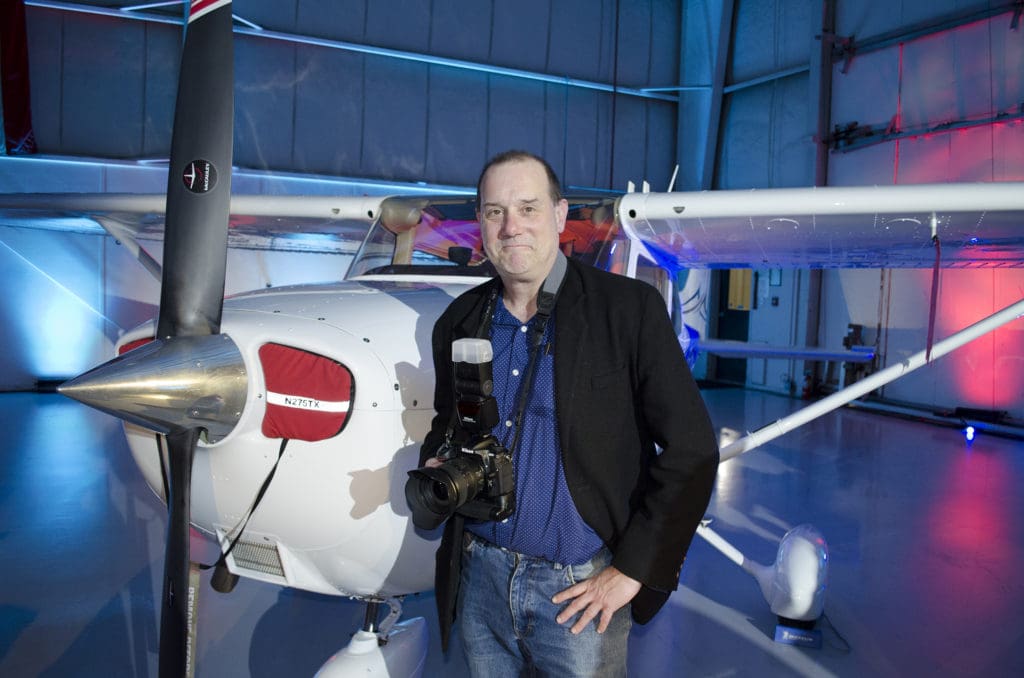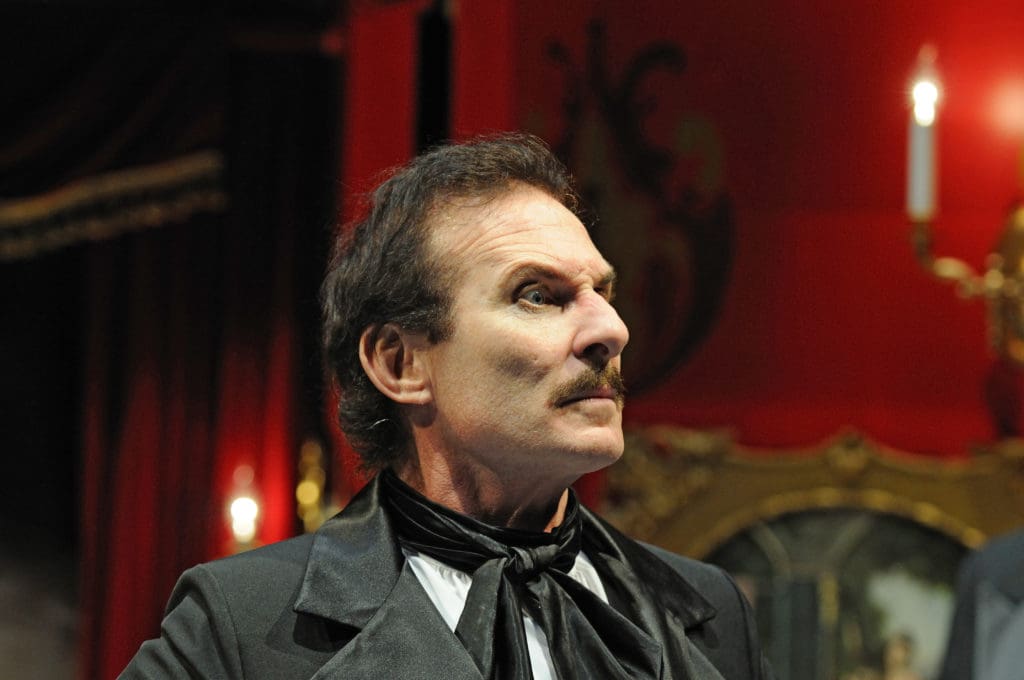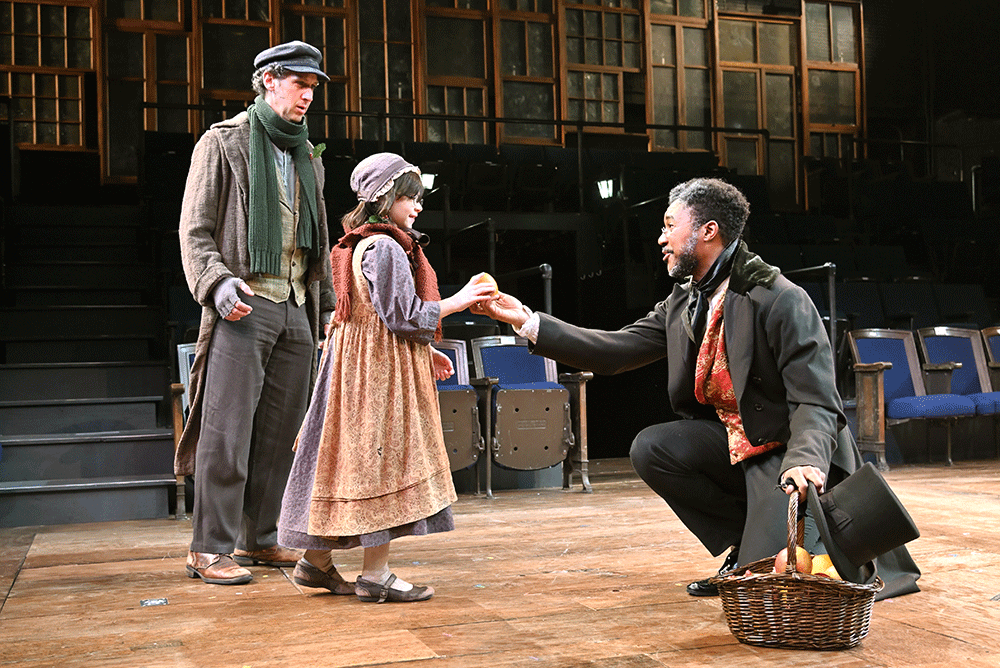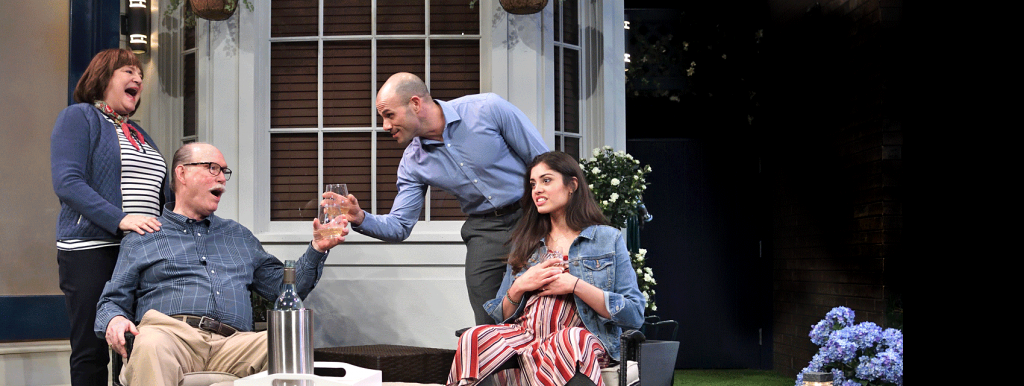
It takes a lot of off-stage work to bring a production to the Trinity Rep stage. Without the hard work and dedication of our staff members, Trinity Rep would not be the Tony Award-winning theater it is today. With that in mind, we’ll be sitting down with one of our talented team members regularly so that our audiences can learn more about who they are and how they contribute to the theater’s work.
Mark Turek is the Associate Production Director at Trinity Rep. He is also a photographer, and has taken many photos for Trinity Rep.
Audrey Rowland: Hi, Mark! Tell me about your start. Where did you go to college?
Mark Turek: I went to Southern Connecticut State University, in New Haven, CT, at the same time Curt [Columbus, Trinity Rep Artistic Director] was going to Yale. We had mutual friends, but we didn’t know each other. When he came here and I found out that he went to Yale and the years he was there, I started dropping references at him. He started looking at me, going, “how do you know all that?” The older you get, the smaller the world is, especially in this business. I majored in Theater, and I had a second major in Geography.
AR: What is your official job title?

MT: My official job title is Associate Production Director. I’m involved in all the different aspects of production. I’ve done a lot of different things with available resources. I was run crew for a long time up at American Repertory Theater in Boston, and I learned so much working in rep there. I had to learn carpentry, props, paint, rigging, maintenance, even puppets. I do special effects, like when the theater needed a body to dissolve onstage in ooze, with thirteen seconds to clean it up. It was this great effect, where Charlie Thurston is onstage and dies and sinks into the bed. All of a sudden, all this green ooze comes out of the side of the bed. That was in The Completely Fictional – Utterly True – Final Strange Tale of Edgar Allan Poe, by Stephen Thorne, which we called Poe. I also do a lot of admin work. I process payroll for actors, designers, overhire, staff.
AR; One of your many responsibilities at Trinity Rep is to photograph each production. What do you look for in your production photos?
MT: Believe it or not, photography isn’t actually part of my official job. It’s an extra job. It becomes this visual question of how to make it interesting. I have to create images that draw a viewer in and make them wonder what’s happening, but still tell the story of what is happening. I shoot, on average, four thousand images for one show. I’m trying to find just those images where something grabs me, if I’m going quickly through them. I can go through about a thousand photos an hour when I’m editing. I will sit there and just scroll, scroll, scroll, and something will catch my eye. I try to make images that are going to get people to come see the show.
AR: Looking back at the mainstage and Brown/Trinity shows you’ve worked on, are there any productions that were especially difficult or rewarding to capture?
MT: One of the challenges is when a scene takes place at night. There’s just no light. To freeze action, you really should be shooting at about two hundredths of a second. I’ll start shooting at a quarter second, a tenth of a second, which is super slow. I remember when we were doing Antigone downstairs, in the Dowling. Rachael Warren came out on stage, stood, walked three steps and stopped, then walked another three steps and stopped. I did a three second exposure, and you could see the motion of her walking, then a pause, and see the motion of her walking again. There were three Rachaels walking across the stage. We never used those photos, but for an experiment as a photographer, it was really cool.
AR: No season at Trinity Rep is complete without the annual tradition of A Christmas Carol. What is it like to photograph each year’s take on the show?

MT: It’s different every year. As a photographer, it always brings the same challenges, especially if we have people flying and flying beds. Where can I position myself to get that interesting capture of someone floating on a bed here and interacting with people down below? That’s where I know how to play with my lenses to condense space, as opposed to a big wide angle, which would capture everything. When Scrooge is visited by the Ghost of Christmas Future is always the biggest challenge for me. It’s always pitch black. There’ve been times where I’ve only gotten maybe one shot for each of those scenes. The end of the show is always the easiest, because all the lights come on for Scrooge’s reclamation. If we use atmospherics like fog, which A Christmas Carol usually does, that can also be very challenging.
AR: You’re famous at the theater for the baked goods, breads, spreads, and more that you bring in to company brunches and Sunday technical rehearsals. What’s your favorite recipe? (Would you mind sharing it?)
MT: Usually on the first day on stage on Thursday, people will come up to me and go, “you’re working Sunday, right? That’s something I started when I moved into my house ten years ago. I spend the whole week up to Sunday baking. I’ve actually been making videos of my recipes. I do tutorials on my nut butter, the spicy dark chocolate cookies, the chocolate chip cookies, the brownies, under “Tech Table Treats.” The nut butter is my favorite thing. I make it probably every two weeks.
AR: Speaking of spreads, you’re also well-known for bringing in (delicious) honeycombs from the bees that you keep. How and why did you get started in beekeeping? What is it like to keep bees?
MT: When we moved into this house, the backyard was empty. I had a blank canvas. I started planting flowers and gardening. Then all these insects, birds, and butterflies started showing up. I started making little habitats for native bees. I use a lot of honey in my baking, and I thought, you know, I should start beekeeping. They are some of the most amazing creatures I’ve had the pleasure of observing and being a part of their life. They’re draconian, but at the same time have this beautiful utopia. I can just sit by the hives and just watch them fly, see what they’re bringing into the hives. It’s also unnerving, when you open up these hives and there’s 30,000 – 50,000 bees just buzzing. I do get stung. Learning the different types of honey has been fun. Spring honey is very light and straw colored. The fall honey, which is my favorite, is really dark and rich. It’s almost like molasses sometimes. It all depends on the plants they’re bringing in nectar from.
AR: Aside from theater and photography, were there any other career paths that you considered?
MT: When I was a child, up until junior high, I wanted to be a naturalist. I wanted to be the next Darwin, the next Jane Goodall. I was athletic, but I didn’t do sports. I preferred to go walk in the woods and lift up rocks, to figure out what bird was singing. I always loved nature. I wanted to be a Park Ranger. Now that I’m older, I have such a respect for farming. It’s seven days a week. I would love to do small scale farming: a hobby farm that I could make a living off of.
AR: You’re involved in so many different aspects of what goes on at the theater. What’s a piece of trivia or a fun fact about Trinity Rep that others might not know?
MT: So many people have seen and heard ghosts. One of the old Technical Directors, Tom, has a cousin who is an animal communicator. She’s very sensitive to things. Back then, I had a dog named Didi who came into work with me sometimes. He started to act strangely – he just wasn’t himself. Tom was on the phone with his cousin one day, talking about my dog. His cousin, without talking to me, described Didi. I called her up and she told me that energies were following me home from work, which upset the dog. She said that I had to ask them to leave. After we got off the phone, I did that, and all of a sudden, my dog leapt off the bed, tail wagging, and jumped all over me. Even my neighbor noticed that Didi was back to himself. Spirits were following me home and my dog was upset. It’s a very weird story.
AR: How about a fun fact about you that your coworkers might not know?
MT: I don’t drink coffee. I have never, ever drunk coffee. Most people in theater go, how can you not drink coffee? It tastes horrible. I did a tour of Italy for nine weeks. Italians love their lattes and cappuccinos. Every crew would be like, Marco, here. I’d take a sip and order tea. I was also in the National Guard, in college. I had a uniform and I went to basic training and advanced infantry training and all that. It had a big influence on how I treat and work with people.
AR: If you could go back in time and give one piece of advice to yourself as you were just starting out, what would you say?
MT: Start your retirement. As I’ve gotten older and started making a little bit more money, I’ve started increasing putting money away for the rainy day, for retirement. I wish I’d had better financial responsibility at an earlier age. I only know of one person, out of all the people I know, that started saving for retirement at eighteen.
